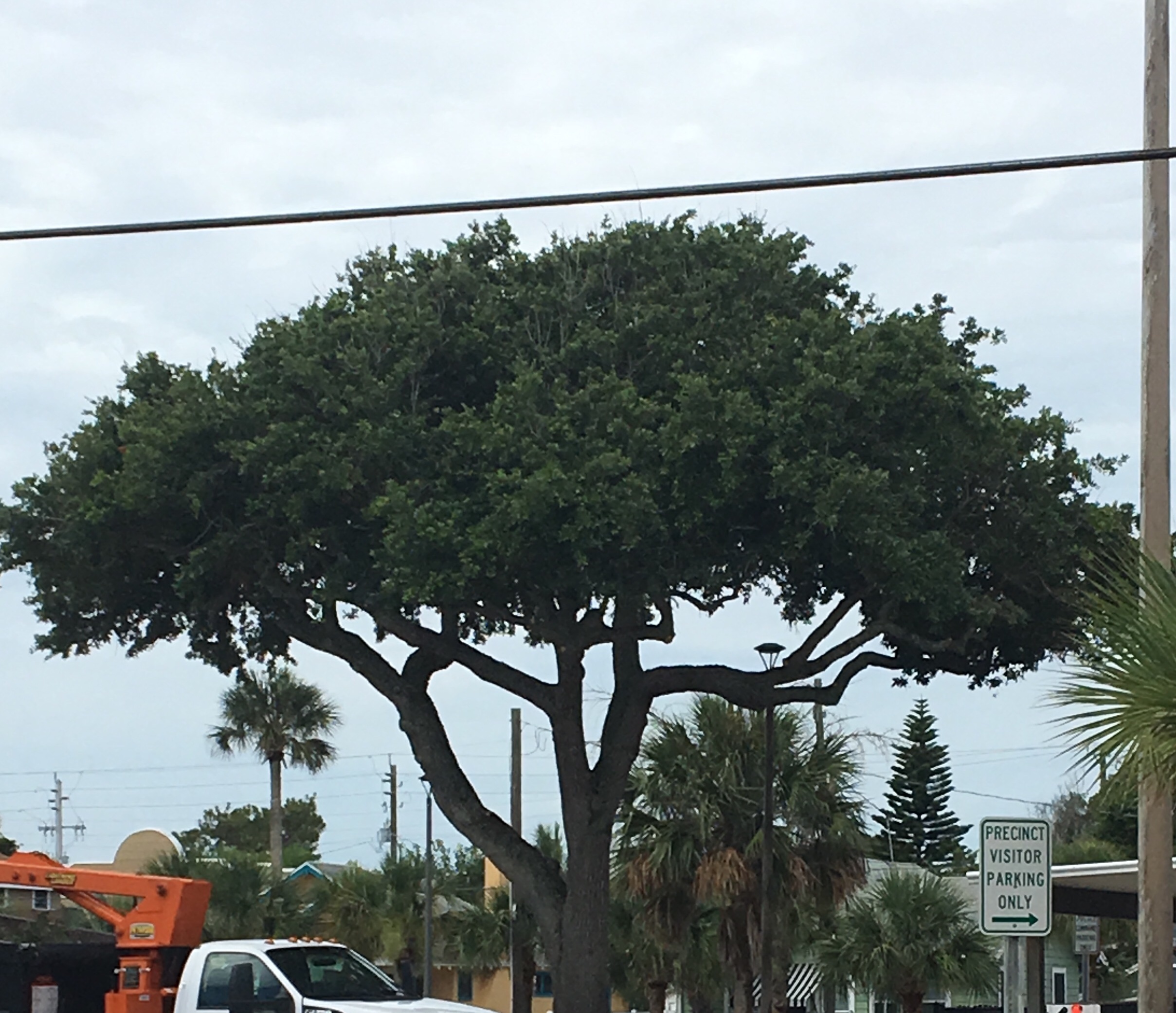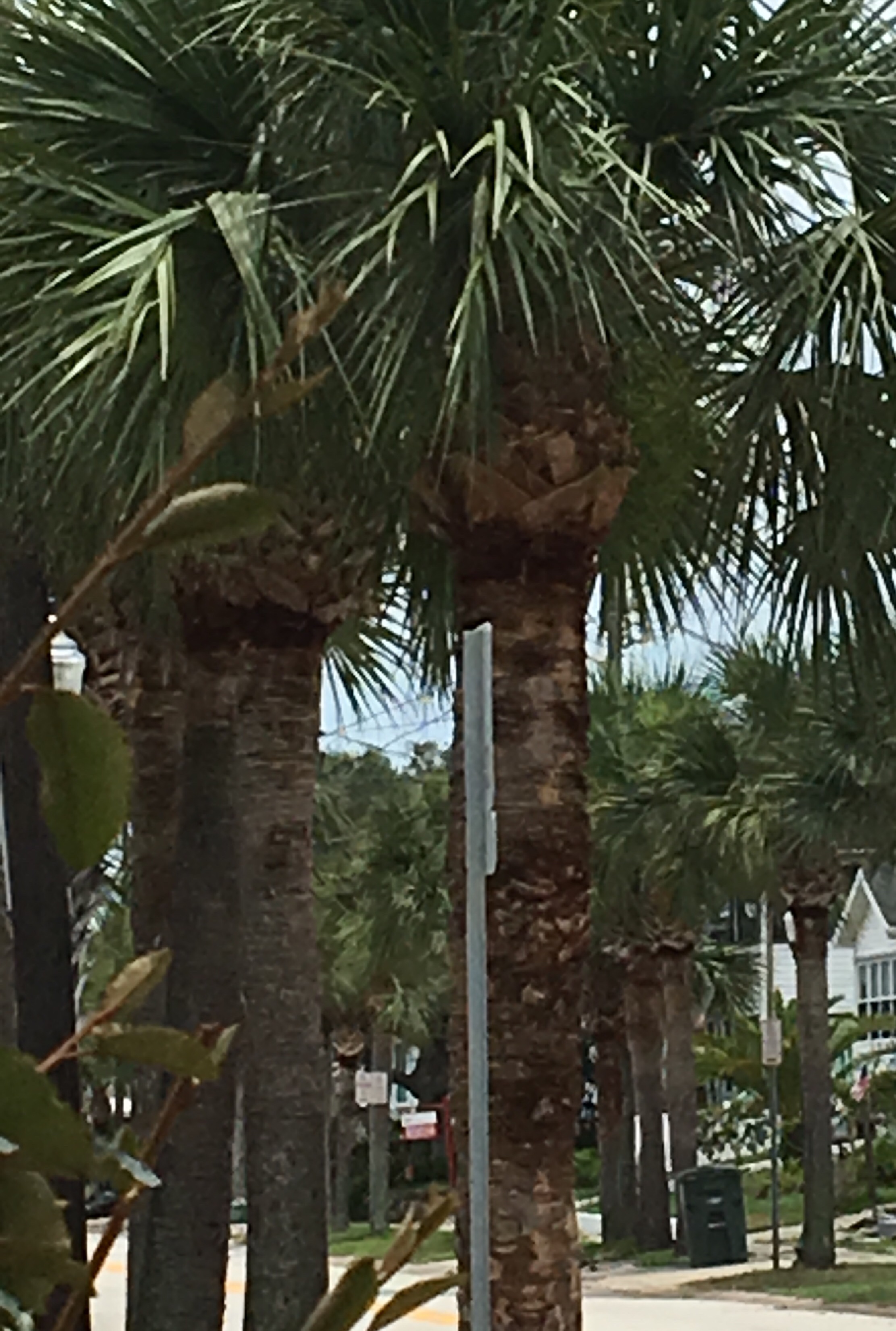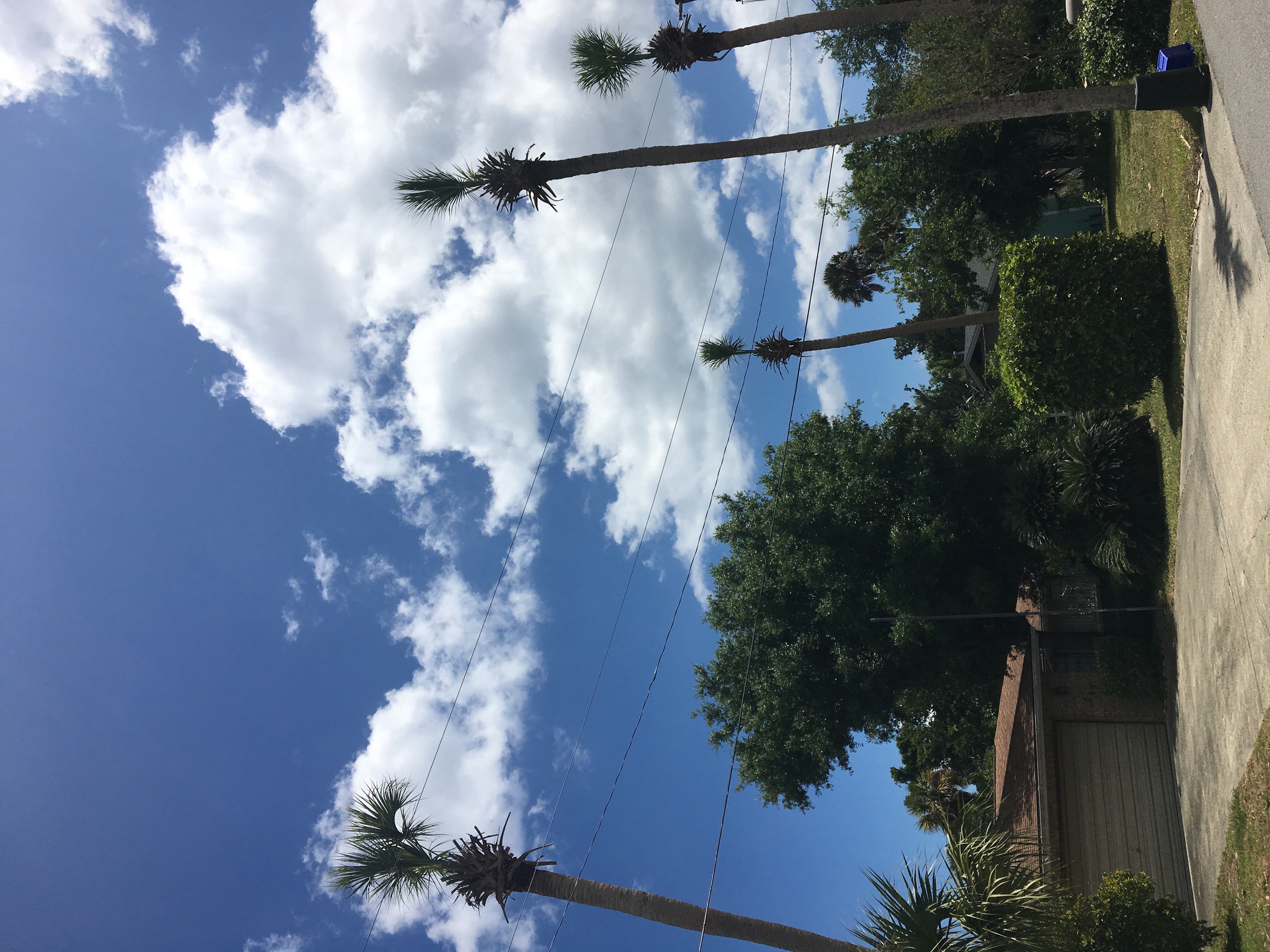


We should start thinking of trees as public-health infrastructure, according to the Nature Conservancy as reported by FastCompany. “Leafy streets cannot afford to be seen as a luxury.”
On that subject, today I had a minor victory in communicating with a public-works supervisor who was overseeing tree work on a public site in my neighborhood.
I walked up to him and asked why they were cutting so many branches off the big oak tree at my neighborhood police precinct. (Insert loud mechanized equipment, teeth-gritting noise here.)
The guy was a bit short with me, replied, “It’s called trimming.”
(Note, this was a guy I had talked with before, a couple months ago, when a work crew was excessively cutting palm trees in our neighborhood and I told them it was bad for the trees, wildlife, and neighborhood. I was trying to be civil but probably came off a little rant-y. So that surely played a role in his response today.)
I said, “I know what trimming is, I just wanted to know why you are doing it.”
He said, “If you know what it is, then you would know why we are doing it.”
I said, “Not really. There are lots of reasons to trim a tree, why are you trimming this tree?”
He pointed up at a light that was above one side of the tree, said, “They want more light here.”
Which did not explain the need to trim so many branches all around the tree, but I thanked him for the information and walked away.
But then a few minutes later I walked back and said, “Look. I’m not trying to be your enemy. And, I’m trying to get better about how I communicate, and who I communicate with. But I’m a citizen and I want to know how my money is being spent. And a lot of us are concerned about the loss of shade on Beachside.”
The interaction didn’t end with everyone feeling lovey-dovey, and I’m still not happy with how much this beautiful oak tree with its graceful canopy is being poodled, like so many other trees in our city. But, a bit of progress in that I stayed calm and kept things focused & brief, and spoke up as a taxpayer/resident.
One thing that has become apparent to me is that, more than anywhere else I’ve lived, people here in my adopted home region on the Atlantic coast of Florida have wide differences of opinion as to what constitutes necessary landscape maintenance. The norm here seems to be very extreme. Right now on the same lot they are doing their habitual thing of shaving the protective bark off the palm trees — something that is just shocking to me. The University of Florida Agrigultural Extension Service and other recognized authorities advise against removing the “boots” (as well as over-pruning the fronds, another common practice around here).
Since so many people in our region seem to favor extreme scalping, those of us who feel differently might need to get a bit more vocal to protect the trees and quality of life in our neighborhoods. (In addition to creating our own preferred environment by planting all the trees and other plants we can on our own yards/balconies).
Photos show the “improved” oak tree, a scalped palm trunk, and a group of “rooster” or “hat-racked” trees, all very representative of landscaping practices that have become more and more the norm in this region in recent years, on public property and private.
The all-reaching cherry-pickers and chainsaws have been at it for hours. Speaking of public health and quality of life, I wonder how much of our mowing and trimming budget could be redirected to swim lessons for underprivileged kids, care of our senior citizens, and even just planting more trees.
I do my best to focus on positive actions I can take. Besides making my yard hospitable for pollinators and other wildlife, I’m also creating native plant landscaping in a few pockets of public space. It’s micro-scale, but it’s attractive; it’s low- to zero-maintenance; and it’s helping with stormwater mitigation even if it’s just on a micro scale. And it is easy for anyone to replicate on any scale.
In closing, my constructive takeaway: Wherever you live, keep on doing what you are doing to communicate about what is important, and shift the norm in favor of ecosystem health. Keep refining your process and don’t give up. Gather allies; they are closer than you think.
